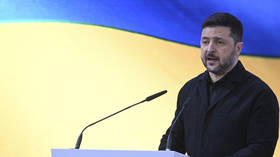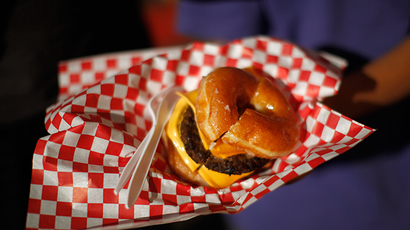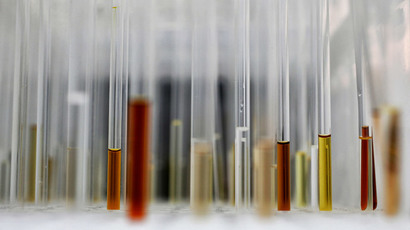Mutant gene that allows people to need less sleep identified, scientists say
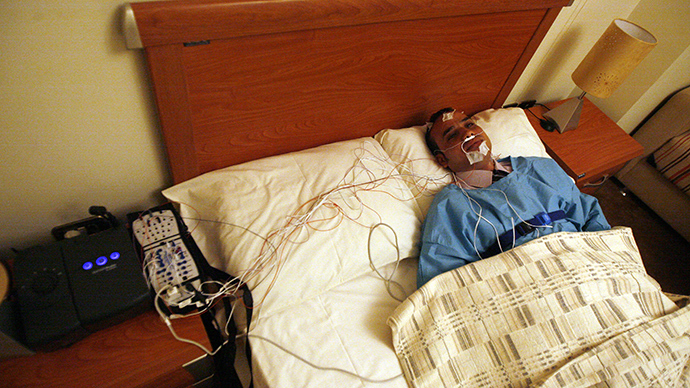
US scientists have found a mutation of the little-understood BHLHE41 gene that, they believe, allows a small proportion of the population to get enough rest, without needing to spend a whole night in bed.
University of Pennsylvania scientists deprived 100 pairs of twins
– both identical and fraternal – of sleep for 38 hours and tested
their alertness every two hours, before checking how much rest
they needed to fully recover.
The starkest difference came in a pair of non-identical twins,
one with a variation called p.Tyr362His in their BHLHE41 gene,
already thought to be important in controlling circadian rhythms.
The twin with the mutation regularly slept one hour less than his
sibling – needing just 5 hours sleep – made 40 percent fewer
mistakes on the test when sleep deprived, and needed 8, and not
9.5 hours to recover after the experiment finished.
The gene did not appear to give its owner a different quality of
sleep, but regulated their internal clocks so that they dropped
into a beneficial form of sleep – NREM, which is crucial to
memorization, cognition and physical recovery – more efficiently
than their twin.
“Both twins had almost identical amounts of non rapid eye
movement (NREM) sleep,” concluded the authors, whose
research was published in the latest issue of scientific journal
Sleep.
“There are a number of mutations of BHLHE41. Mutations reduce
total sleep while maintaining NREM sleep and provide resistance
to the effects of sleep loss.”
Being able to identify – and perhaps later genetically engineer
this mutation – could be of vital importance. The most recent
National Health Interview Survey shows that almost 30 percent of
all Americans have slept for less than 6 hours in the past 24.
The majority of these do not possess the helpful mutation, with
the deprivation hurting their concentration, speed of thinking,
memory and fitness.
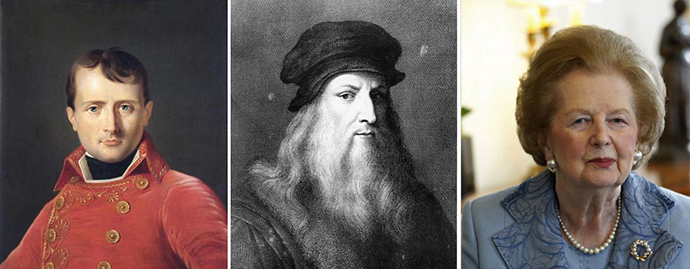
Some in the media have been quick to dub the new variation the
‘Thatcher Gene’, after Margaret Thatcher, the late UK Prime
Minister, who legendarily got by on just four hours of sleep a
night. But it is impossible to say if she possessed it, or if she
was simply impaired, as are most of the fatigued, and if the
deterioration of her health after she left office, including a
series of debilitating strokes, was connected to her chronic
sleep deprivation.
Other historical figures who had a reputation for being
‘short-sleepers’, are Napoleon Bonaparte and Leonardo da Vinci,
though without genetic analysis, there is no way to separate the
edifying myth of the productive genii who never needed to rest,
from the reality.
But BHLHE41 - or Dec2 as it is also known – has been at the
forefront of sleep research since a landmark study in 2009.
An elderly woman and her daughter approached a US team of
researchers, saying that although they went to bed at normal
time, they woke up before sunrise, full of energy, throughout
their lives.
The scientists separated the variation, and then introduced it to
mice, which also repeated the behavior patterns of humans – being
more alert when tired, and needing less sleep for rest.
The 'short-sleep' variation in the BHLHE41 exists in less than 1 percent of the population - according to Mehdi Tafti, a professor at the Center for Integrative Genomics at the University of Lausanne in Switzerland who has been involved in sleep research - making it difficult to conduct long-term studies of the comprehensive effects of the mutation. And while the gene appears to be decidedly beneficial, the uncertain impact of different types of sleep on cognition, health and longevity, means that there should at least be some caution before we attempt to turn most humans into Dec2 mutants within a generation or two.




